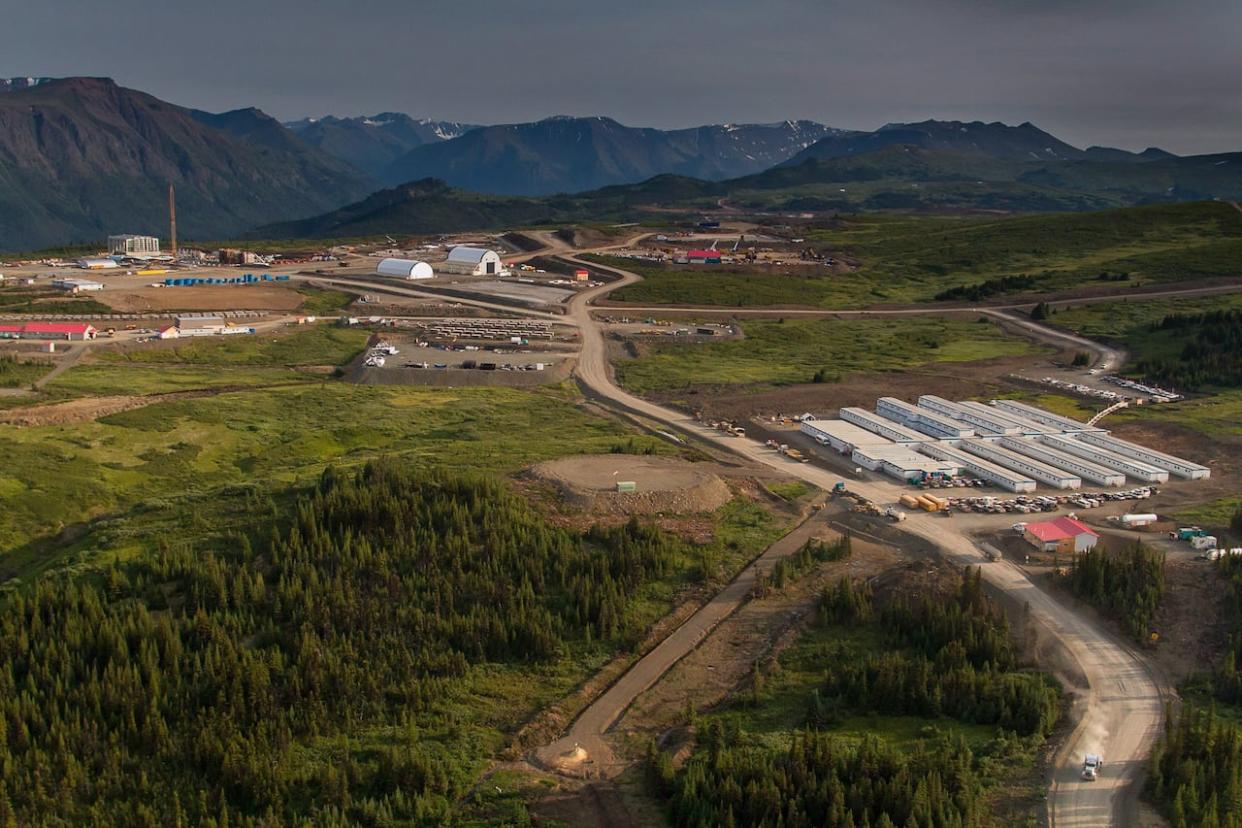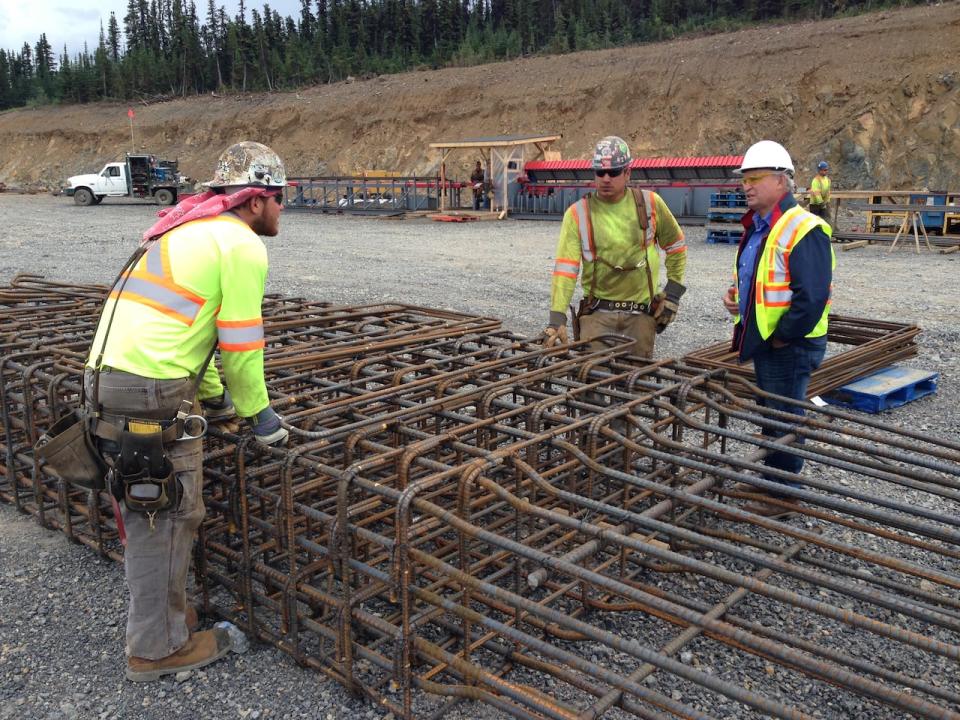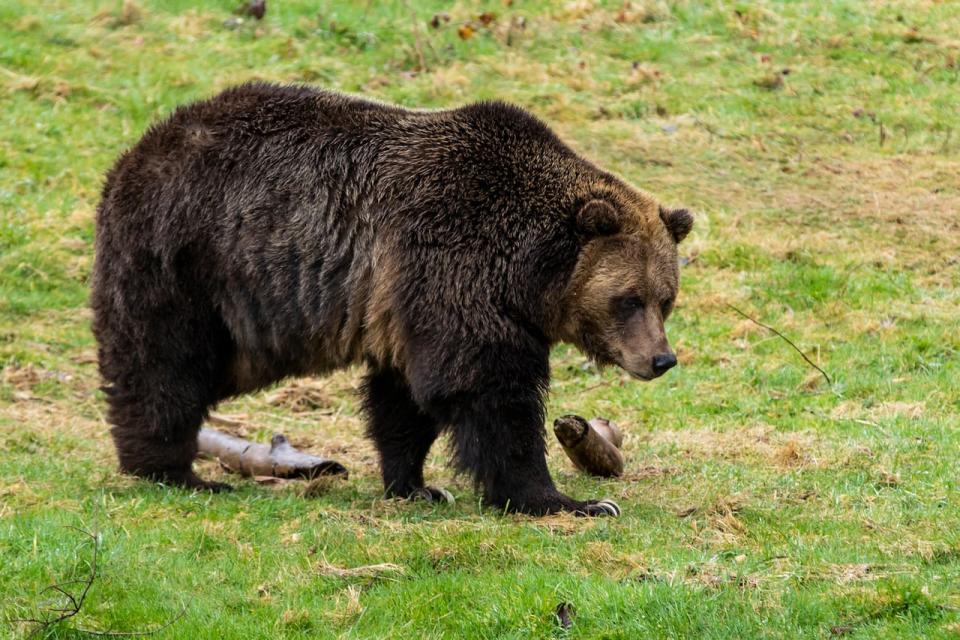B.C. mine operators fined $25K for not installing electric fences to deter bears

The B.C. government has issued a $25,000 fine to the operators of the Red Chris mine in northwest B.C. for not installing electric fences around its work camp to deter bears from entering.
The province says that "electric fencing helps prevent dangerous interactions between people and wildlife, specifically in this case grizzly bears," and that mine operators displayed "repeated non-compliance" with orders going back to 2018.
In a Tuesday statement, the province's environmental assessment office (EAO) said that multiple inspections over the years found that the Red Chris Porphyry Copper Gold Mine, located 80 kilometres south of Dease Lake, was not complying with fencing requirements.
Those requirements were laid out in a list of commitments that operators Newmont Corporation — which acquired former operators Newcrest in November 2023 — agreed to as part of the provincial environmental assessment process.
"Project records show frequent grizzly bear activity in the area and at least two instances of problematic human/bear interactions in or around the camp," reads the province's statement.
The EAO says that adequate fencing around the work camp was only installed in July 2023, when it threatened to have the mine shut down within 30 days.
"An additional administrative penalty has been recommended related to the ongoing non-compliance and subsequent 2023 order, but a decision is still pending," reads the statement.
There is no appeal process for EAO decisions, according to the province, but Newcrest, which operated the mine at the time, argued the fine should be reduced for two reasons.

Then-mining minister Bill Bennett talks with ironworkers at the Red Chris mine site in August 2013. (Government of B.C./Flickr)
In an emailed response to the EAO, Newcrest vice-president Ben Wither argued that the company did not deliberately contravene the requirements, and it did not derive economic benefits from not having a fence "through diminished maintenance costs," as the EAO had initially stated.
The province agreed, saying the fine amount had been adjusted in light of Newcrest's arguments in its written decision.
Newcrest said it had accepted the fine in its response to the EAO.
In a statement, new owners Newmont said the violations happened before they acquired a 70 per cent stake in Newcrest this year. They said that fencing was completed in August of this year.
"As the recognized industry leader in responsible mining, Newmont remains focused on integrating Red Chris and all new properties acquired through the Newcrest transition into its operating model and ensuring compliance with our robust social and environmental standards," a spokesperson said.
Protesters blockaded mine in 2014
Warnings related to bear activity come amid a spike in bear sightings across B.C. this year, with grizzly bears in particular being sighted more often in 2023. The species is listed under the province's blue list, which means their populations are vulnerable.
Conservation officers have urged the public to secure wildlife attractants, like rotting food and fresh fruit, to prevent human-wildlife conflict. Electric fences are one of the most effective ways those attractants can be secured, according to non-profit WildSafeBC.

Grizzly bears are listed in the provincial blue list, which means their populations are vulnerable. (Ben Nelms/CBC)
The Red Chris mine was controversial at its outset, with First Nations in B.C. and Alaska warning of its potentially negative impact to the environment at the time.
Protesters from the Tahltan Nation, on whose lands the mine sits, even blockaded the mine site in 2014. Now, however, the nation is fully involved with running the mine, which the province says opened in 2015.
Recently, the nation signed an agreement with the provincial government that means any substantial changes to the mine's environmental assessment certificate can only go through with Tahltan consent.
A search through the EAO's project information centre for the Red Chris mine shows two other warnings issued in the past few months
The first warning, issued in August, says that an inspection dug up concerns regarding how the mine handled sediment and erosion control and fuel spill management.
A subsequent warning, issued in October, found that the project was in compliance with sediment and erosion control requirements — but that "multiple spills" were reported in the tailings impoundment area even as there was a general improvement in spill response and cleanup.
The EAO's warning states that the maximum penalty in this instance would be $1,000,000, and they would continue to monitor the project for non-compliance going forward.


